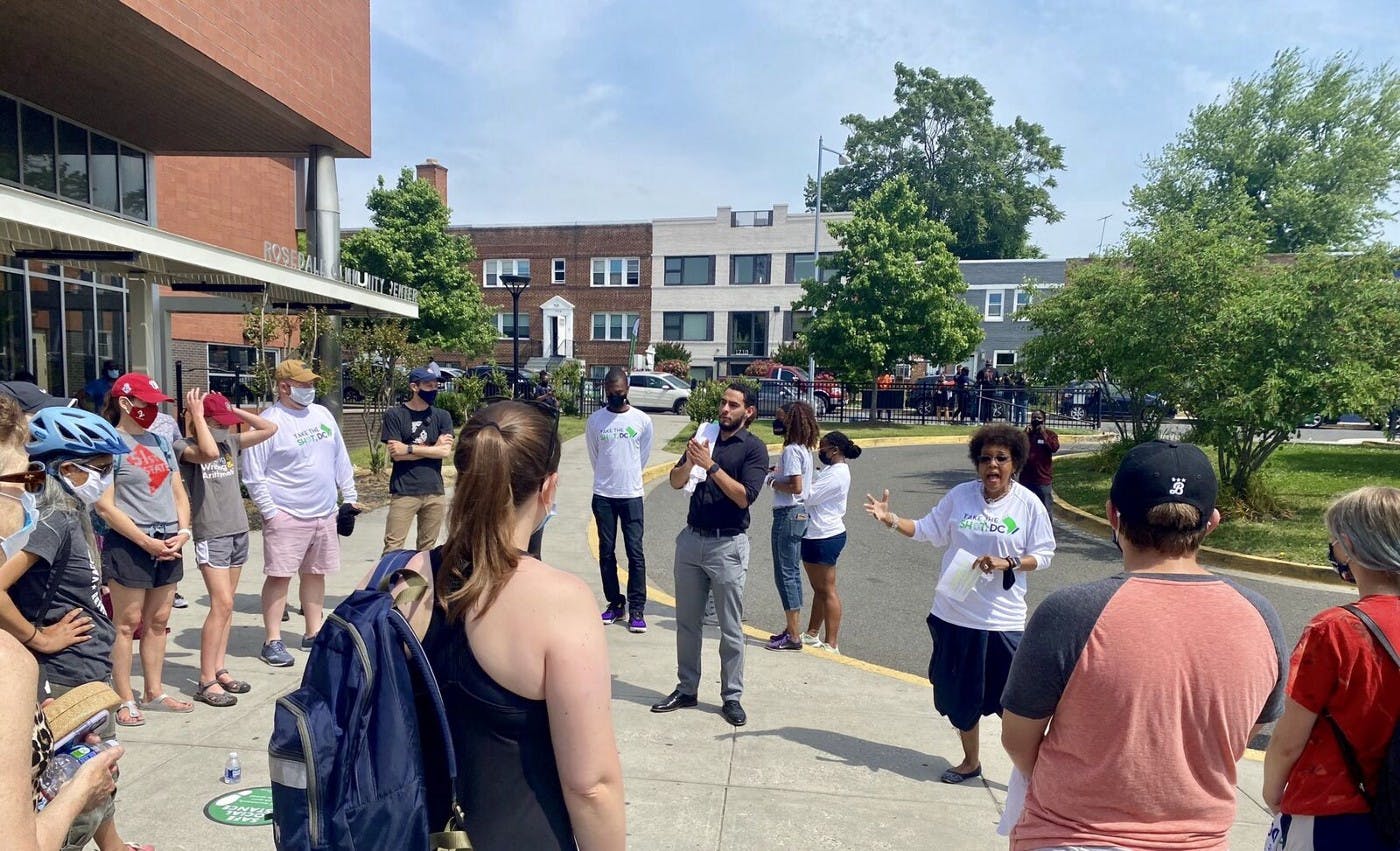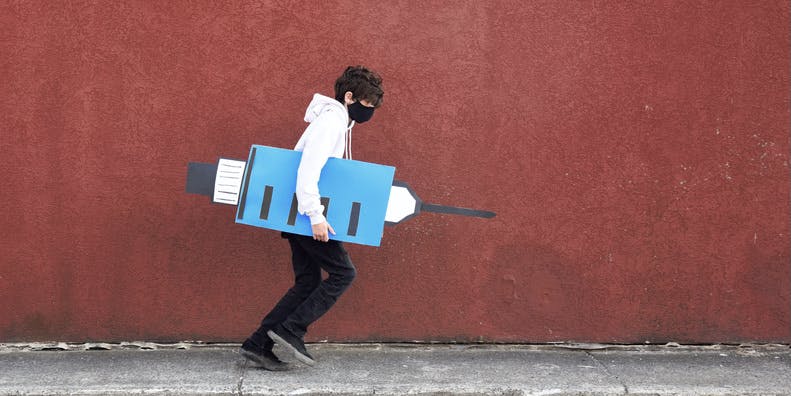Our last mile vaccination playbook: hyperlocal trust building

Topics
While around half of the U.S. population is now fully vaccinated, spiking case numbers and the rise of the Delta variant are a stark reminder that the pandemic is not over yet.
Despite having enough vaccines for every resident, the United States has one of the highest rates of vaccine hesitancy and refusal in the world, second only to Russia. There are a wide range of reasons for this hesitancy including misinformation, lack of trust, and lack of opportunity due to barriers like inflexible work schedules and transportation needs. In these cases, broad, “one-size-fits-all” campaigns to encourage vaccinations just don’t work.
Closing the gap, especially in under-vaccinated communities of color that were most impacted by COVID-19, requires tapping into pre-existing, hyperlocal networks to meet people where they are. According to Dr. B’s Seattle City Director, “deep organizing is a response to some of today’s most intractable problems, because it focuses on existing relationships, active listening, and compassionate sharing of factual information.”
“Deep organizing is a response to some of today’s most intractable problems, because it focuses on existing relationships, active listening, and compassionate sharing of factual information.”
As part of our mission to save lives by getting vaccines into as many arms as possible, Dr. B has been supporting existing community outreach programs in key neighborhoods within Chicago, Seattle and Washington D.C. Here are some highlights from our work in the field:
Chicago: Pop-up clinics + college student guides
In Chicago, the Dr. B team has been conducting outreach efforts in communities with low vaccination rates including Englewood (27.5% vaccinated) and The Back of the Yard (44% vaccinated). Dr. B has worked with partners such as Grow Greater Englewood, which aims to create environmentally sustainable farming businesses, and Plant Chicago, which equips people and businesses with the tools to live more sustainably, to share information about the vaccine and arrange pop-up vaccination clinics.
Our Chicago team noted that roughly 50% of the people they interacted with at outreach events were unvaccinated themselves and the other 50%, “really wanted to come up and talk to us and learn about how they could have conversations with unvaccinated friends, family members and coworkers.”
The Dr. B team also created a resource for college students, A College Student’s Guide to Navigating COVID-19 and Navigating the Windy City, to help them navigate the vaccine landscape.

Seattle: Grassroots training programs + pop-up clinics
A much-loved community organizing phrase, “the people closest to the problem are closest to the solution,” functions as both a value statement and a core tactic for our Seattle vaccine outreach.
“The people closest to the problem are closest to the solution.”
In Seattle, the Dr. B team has been focusing on King County for our outreach efforts. While King County has a high vaccination rate, the diversity of the population means that unvaccinated individuals are dispersed across communities.
To combat misinformation and lack of access, the Dr. B team conducted grassroots training and canvassing programs in partnership with local community organizations. Good training aims to support, not teach, and it provides an opportunity for community members to step into their expertise and strengthen their existing relationships — ultimately increasing vaccinations and protecting the community.
The team also ran a series of successful pop-up clinics in under-vaccinated neighborhoods and offered incentives to make the vaccination decision as painless as possible.

Washington DC: Food distribution + farmer’s market canvassing
In D.C., the Dr. B team was guided by the idea of “resource bundling.” While COVID vaccine outreach programs are new, D.C. hunger relief organizations have been doing work in vulnerable communities for years. By partnering with Food for All D.C., an existing organization, we were able to bundle high quality vaccine resources with direct distribution of food for over 1,200 families facing poverty or food insecurity.
Our team also partnered with FRESHFARM, which aims to improve food access for low-income communities, to lead vaccination awareness campaigns at local farmer’s markets. Our canvassing materials were specifically designed for families and included information around childcare and school re-enrollment in addition to vaccination information. We were able to address concerns around vaccine safety and how to access vaccination sites.
As our team leader in D.C. aptly said, “there is no greater time for public health and hunger relief organizations to come together to provide resources to keep our neighbors safe, healthy, well-fed, and economically secure.”
We are proud of the hard work our teams have done to help vulnerable communities access the COVID-19 vaccines right where they are. We’re thankful to all of our community organization and nonprofit partners and encourage everyone to continue doing their part to end this pandemic.
Topics
Sign up for the free Dr. B newsletter for a weekly report on the latest in healthcare + research-based advice for staying healthy and mentally well.